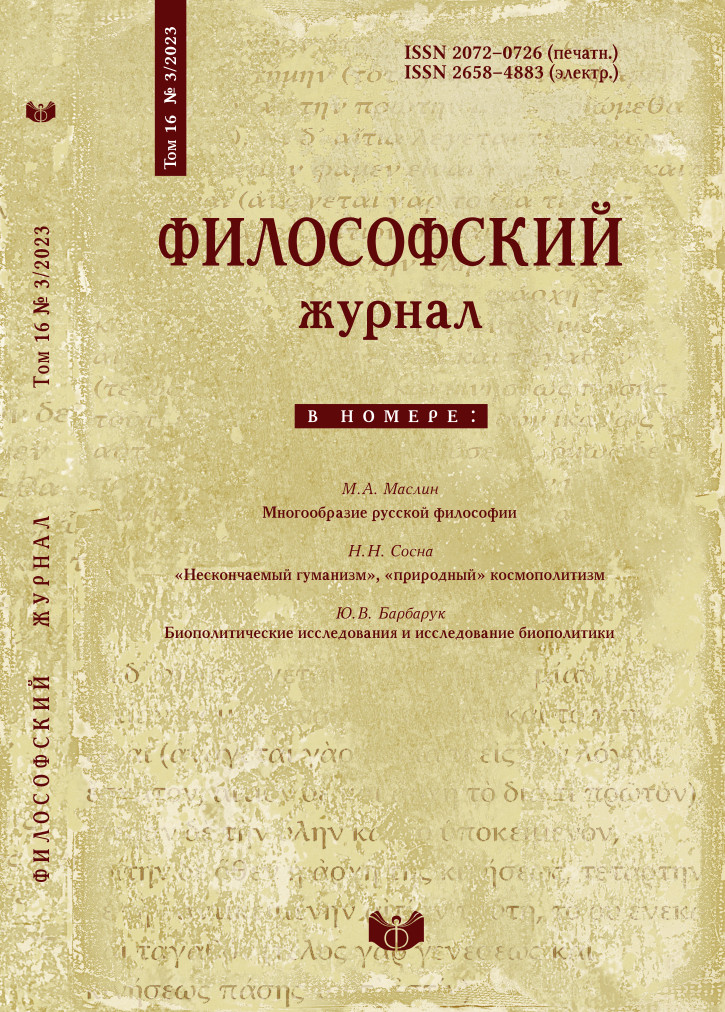Модернизм и философская традиция
DOI:
https://doi.org/10.21146/2072-0726-2023-16-3-69-84Ключевые слова:
Джон Макдауэлл, Стэнли Кавелл, Роберт Пиппин, история философии, герменевтикаАннотация
Многие философы согласны с тем, что в отношениях с философской традицией мы неизбежно сталкиваемся с герменевтической проблемой: как достичь адекватного понимания этой традиции? Считается, что нам необходимо установить диалог с фигурами прошлого, а не приписывать им свои собственные мысли и идеи. Впрочем, мало кто рискует предложить надежный способ разрешения этой проблемы. В то же время есть и те, кто полагает, что герменевтическая проблема не столько требует своего решения, сколько указывает на определенную установку по отношению к прошлому. В рамках этой установки мы нацелены не столько на адекватное истолкование философской традиции, сколько на ее преодоление. При этом описывать характер своих отношений с традицией можно по-разному. Например, свою зависимость от традиции можно рассматривать как препятствие для понимания самих себя и своих отношений с миром. А можно, наоборот, рассматривать ее как условие возможности для такого понимания. Именно последней точки зрения придерживается Джон Макдауэлл. Не отрицая того очевидного факта, что между разными историческими контекстами всегда есть определенная дистанция, он тем не менее показывает, что в философии не существует непроходимой пропасти между ее настоящим и прошлым. В статье дается обзор того, каким образом Макдауэлл, опираясь на идею логического пространства разумных оснований Уилфрида Селларса и на идею слияния горизонтов Ханса-Георга Гадамера, решает эту задачу. Кроме того, в статье показано, почему самого Макдауэлла можно считать представителем модернизма в философии.






